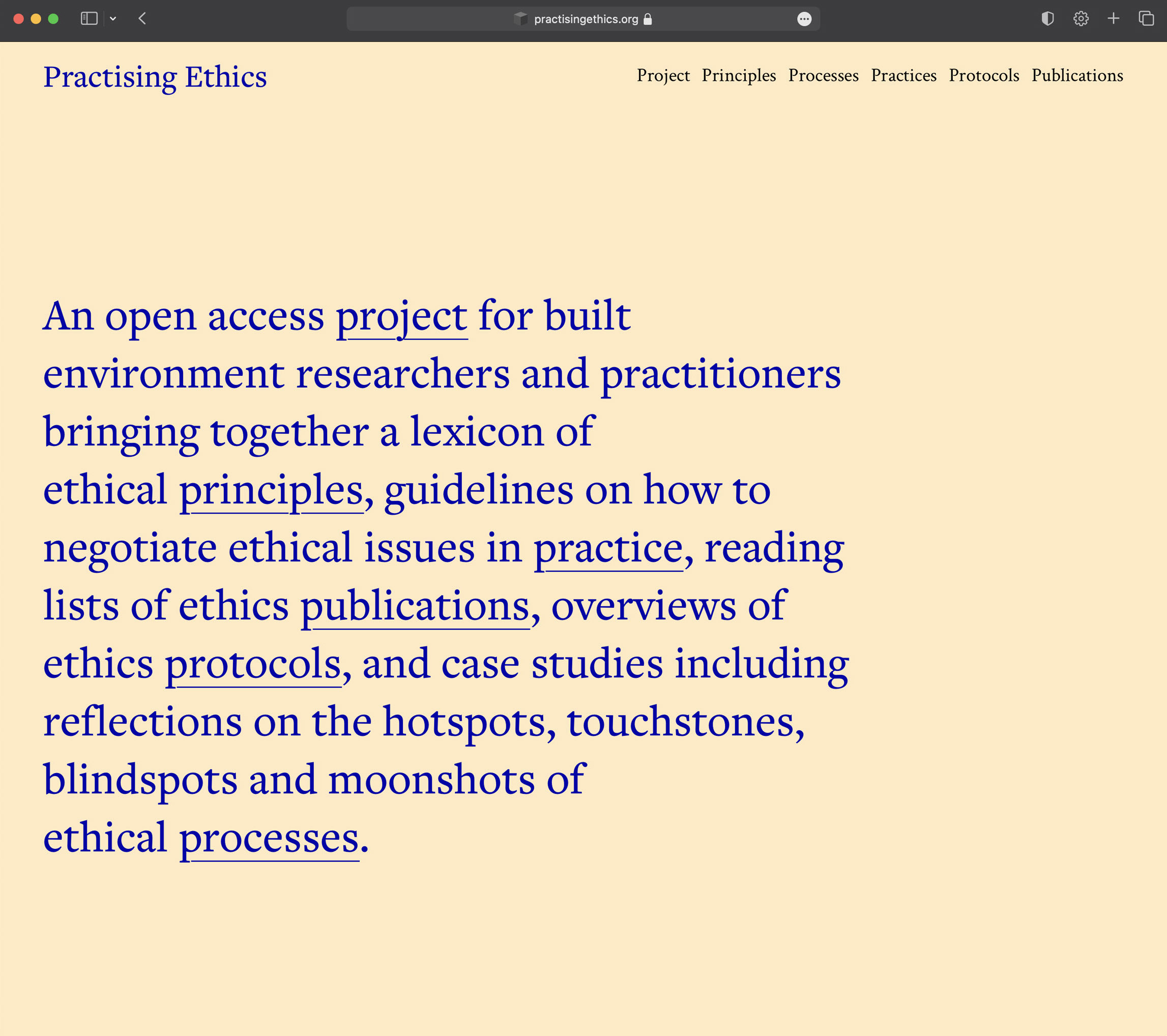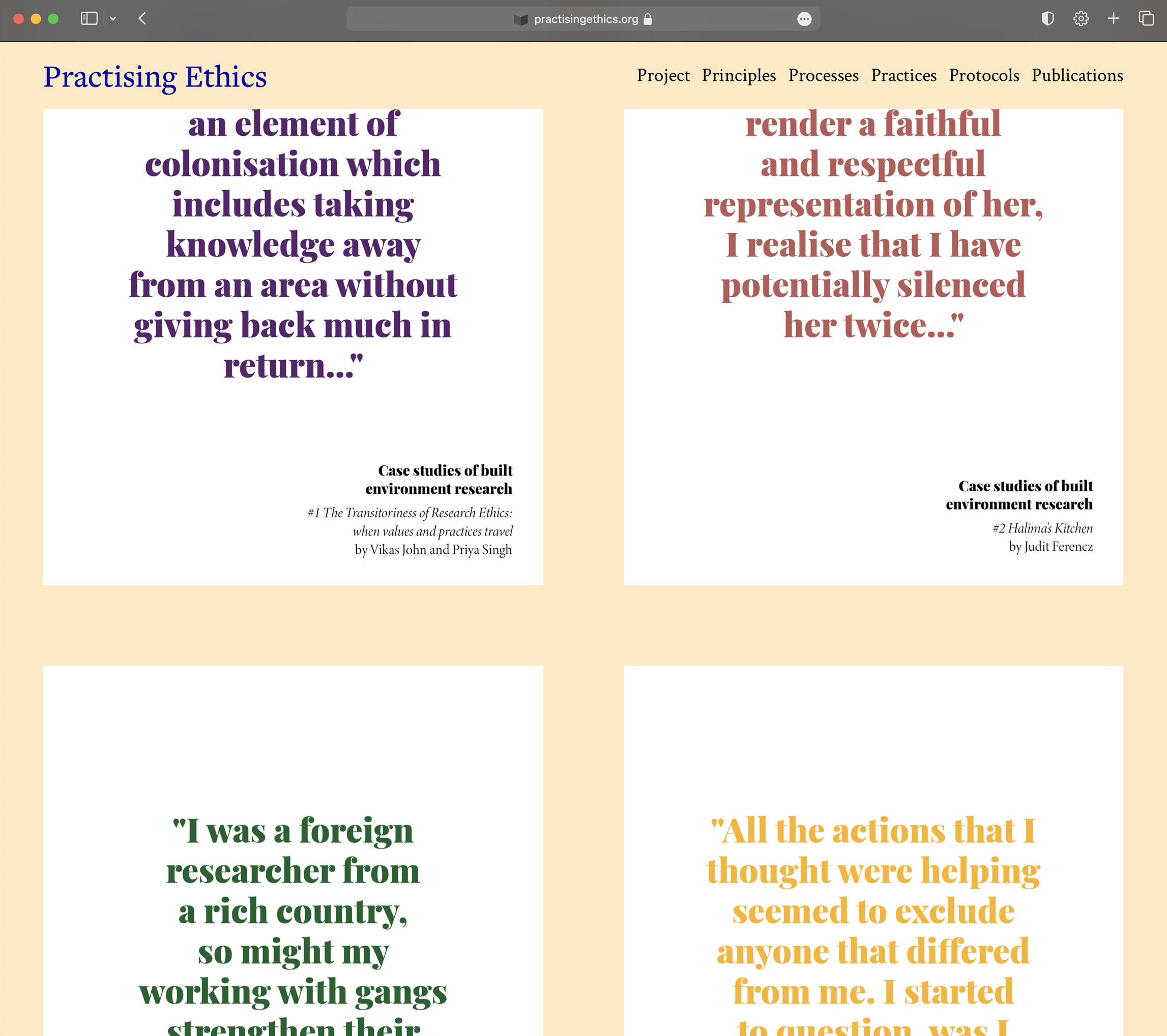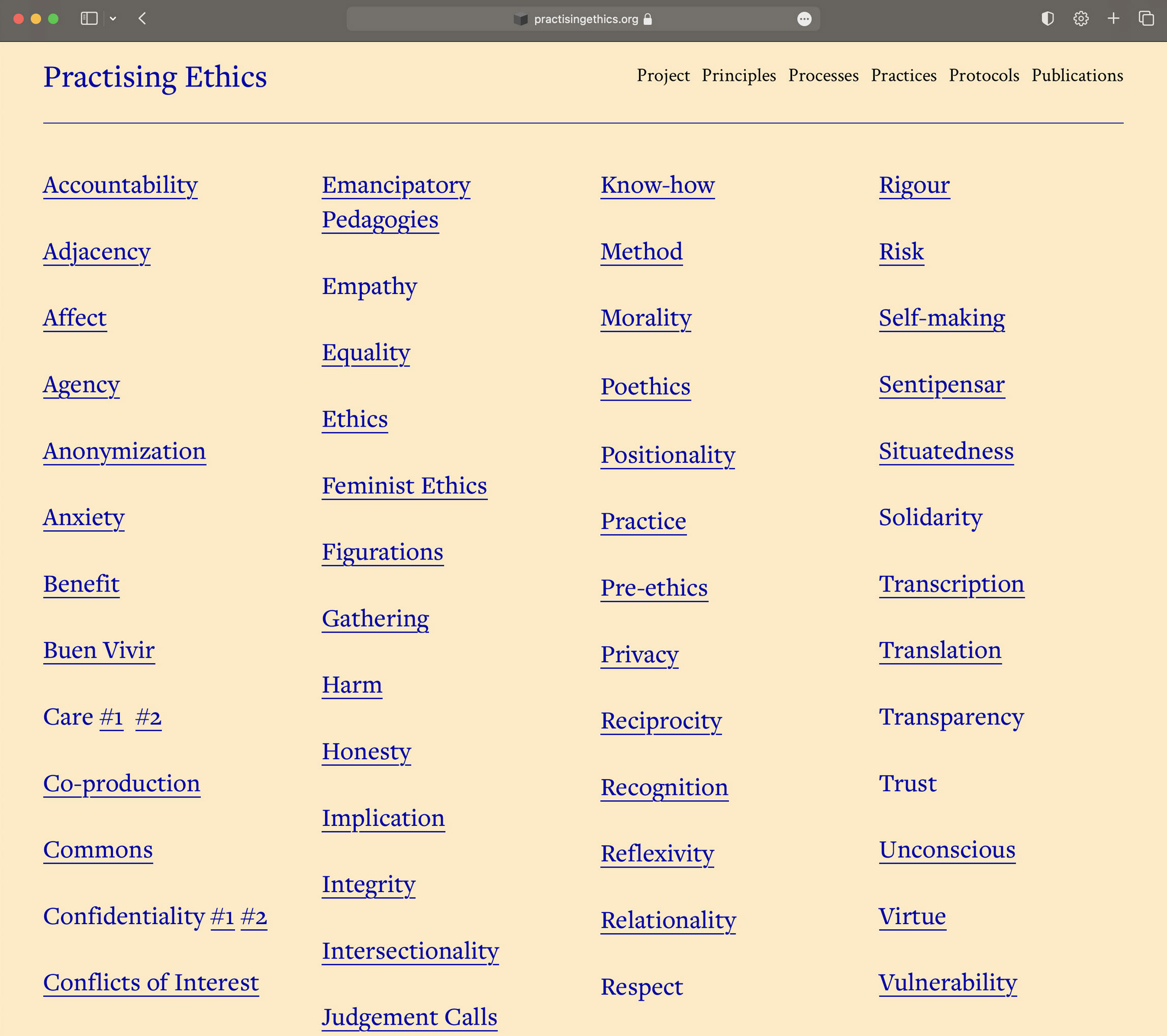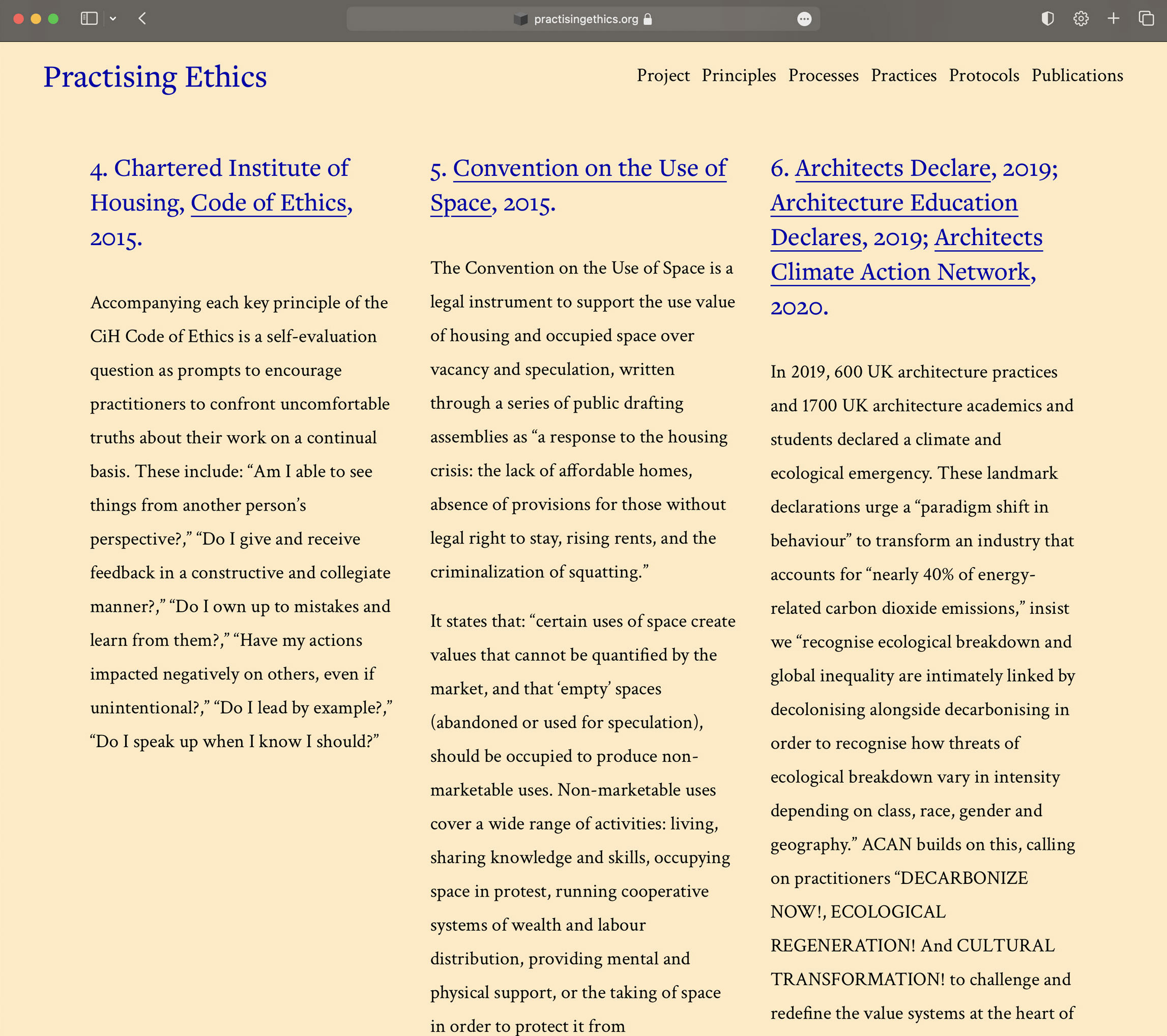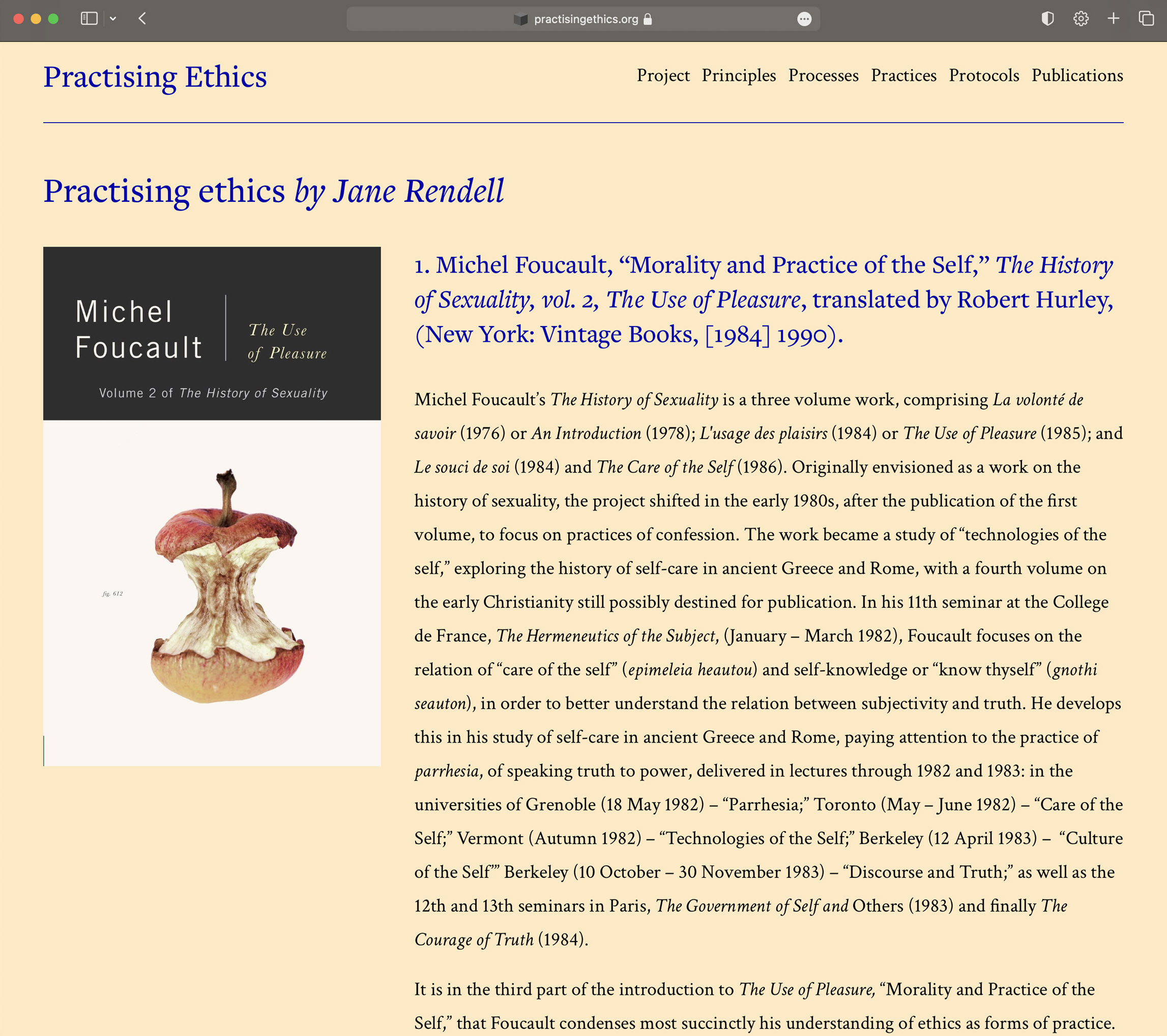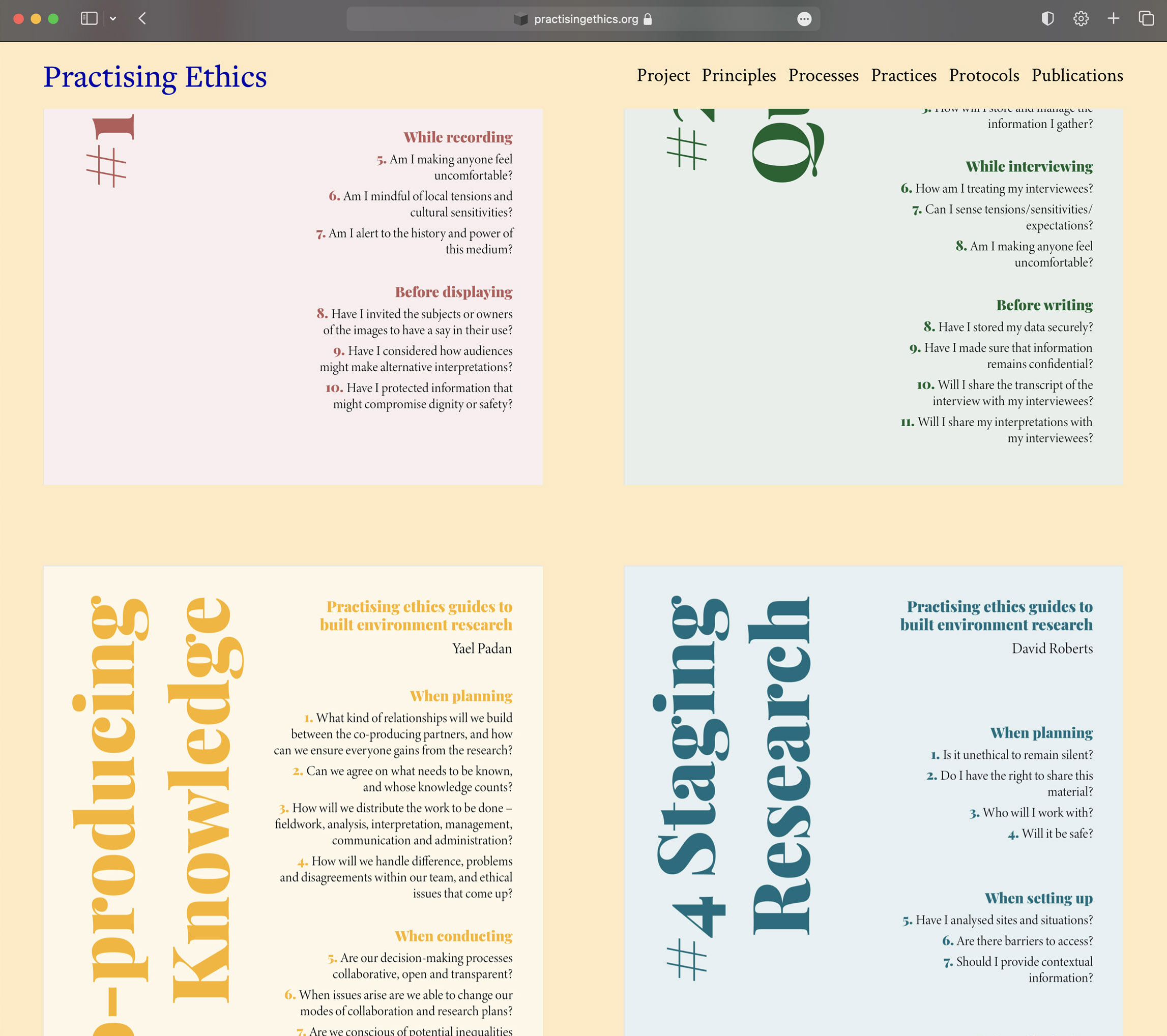Practising Ethics
Practising Ethics is open access website for built environment researchers and practitioners bringing together a lexicon of ethical principles, guidelines on how to negotiate ethical issues in practice, reading lists of ethics publications, overviews of ethics protocols, and case studies including reflections on the hotspots, touchstones, blindspots and moonshots of ethical processes.
A lexicon of ethical principles define and contextualise key ethical terms for built environment researchers and practitioners. These terms have been drawn from institutional codes and protocols, various branches of theory and philosophy, as well as lived experiences. It includes concepts you might expect to see, such as confidentiality and risk. But our project is concerned with alternative ways of considering ethics – namely in how ethics is a lived practice. By exploring what Susan Banks et al call “everyday ethics,” it is possible to take into account the dialogic, engaged, participatory, positioned, relational, and especially the situated aspects of ethics. So the lexicon also includes various branches of philosophy and experiences of encountering ethical concerns with terms such as Buen Vivir and Sentipensar, feeling-thinking or sensing-thinking which centres the production of an empathic knowledge linked to the poetics of everyday life.
A set of case studies offer insights into the ethical dilemmas that can arise during a research project, which give an account of those ethical hotspots that emerge out of specific situations and projects, and the process of connecting them to broader principles and protocols, what we are calling “touchstones.”
A series of practising ethics guides offer insights into how to negotiate the difficult ‘ethical moments’ that different built environment research methods and contexts pose, and develop an ethical practice as a built environment researcher. The guides stimulate ongoing reflection through self-evaluation questions and expand ethical awareness through practical and philosophical resources. They develop tailored approaches related to specific research methods – Making Images, Asking Questions, Staging Research, Co-Producing Knowledge, Risk and Wellbeing, Researching Internationally, Analysing Secondary Data, and Co-writing Research – taking into account the non-linear, iterative stages of a research project, offering advice at all stages – from planning, to conducting field research, to communicating through outputs.
A selection of overviews explore the various ethical codes and procedures drawn up by different institutions, disciplinary groups, professional bodies and research councils, comprising institutional protocols/codes on north-south research ethics by Yael Padan, protocols/codes for ethical research practice by English-language-speaking academic and research institutions by Jane Rendell, and built environment protocols/codes/declarations by me.
Finally, a set of reading lists summarise specific aspects of ethics, situating the project with reference to literature in philosophy, feminism, decolonial theory, as well as urban, development planning and architectural theory.
This educational tool is designed and produced by me, and curated by Jane Rendell. An outcome of a collaboration between the Bartlett Ethics Commission (2015-2022) and Knowledge in Action for Urban Equality (KNOW 2018-2022), it is a co-produced work and includes the research and writing of over 30 contributors.
